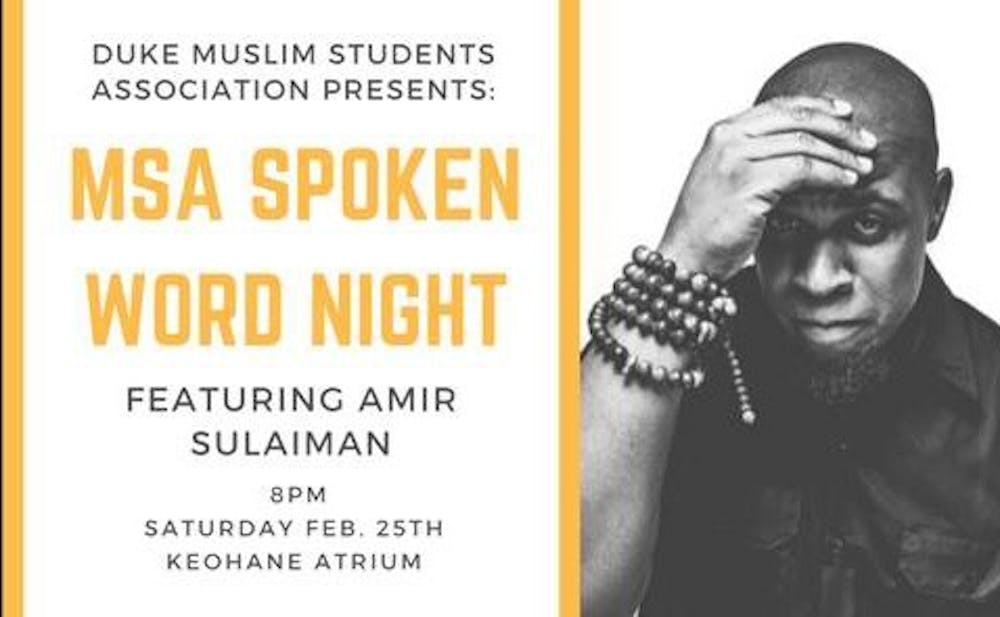Student rappers and spoken word artists took to the stage Saturday night at the Muslim Student Association’s spoken word night.
The, part of Duke’s Islam Awareness month, highlighted special guest Amir Sulaiman, a Muslim recording artist, spoken word performer, actor and Harvard Fellow.
Sulaiman’s spoken word is striking and powerful: his piece “Danger” cuts through the facade of political correctness. It carries tones of retribution and violence—not just in reference to the brutal and cruel treatment of African American men and women when they were enslaved by fellow humans—but in reference to the Israeli-Palestinian conflict and white supremacy. Sulaiman says he “will slice his belly open”, to free black souls which have been taken by institutional violence, police and slavery. He ends the piece saying we must “fight, kill, and die free.”
In contrast, student performer and self-identified Muslim Jimshad Farooque Jr., spoke of gradualism, believing that peace, tolerance, patience and love can conquer hate. However, Farooque said he believes the message of “Danger” is incredible, and that it gives a powerful voice to the injustices committed against black people.
“There are people that believe you should fight and kill until you’re free, and I guess over time, when injustice after injustice keeps getting committed you get frustrated. I agree that he has a right to be mad, but I don’t agree with the method,” Farooque said.
When asked how people who are not Islamic or black should receive and listen to the anger expressed in his spoken word, Farooque suggested a solution that should seem obvious but often isn’t: listening and thinking.
“If a race or religion plays a part in a piece, try to think about why they’re saying what they’re saying. Think about why that person is angry,” he said.
Farooque said he does not rap exclusively about faith. He raps about about his experiences, about who he is as a person and even about stories he makes up in his head.
Sophomore Eric Morgenstern, also known as the rapper eQ, was another highlight.. While Morgenstern does not identify as Muslim, he said he has taken considerable inspiration from Islam by growing up in a community where many practiced Islam. Morgenstern practices ethical humanism, practitioners of which, Morgenstern noted, attribute worth and dignity to human life as a starting point in their quest to an ethical life.
The influence of Morgenstern’s beliefs is evident in his artistic pursuits – his production name is eP, an abbreviation for Ethical Productionz, and his former rapper name was eQuality. At the spoken word night, Morgenstern performed “Down the Road” where he delved into his ability to change his fate. He suggested we do have considerably more agency in determining our future than we practice, but it is quite possible we will never use our agency and continue to maintain the status quo.
For these artists, though, the status quo was anything but satisfactory. They used their agency to perform.
Get The Chronicle straight to your inbox
Sign up for our weekly newsletter. Cancel at any time.

